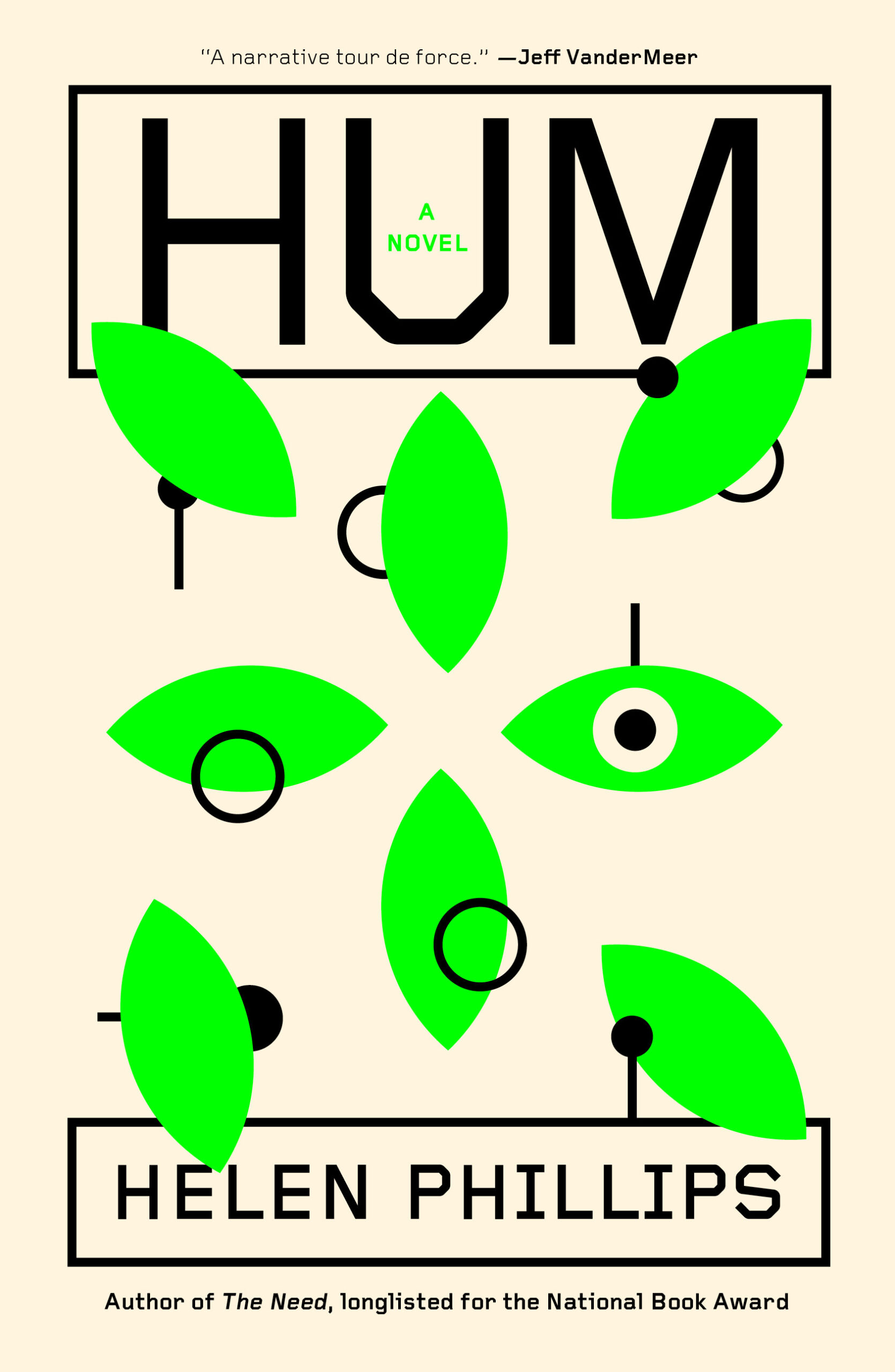Helen Phillips joined WPR’s ‘BETA’ a while back to talk about her novel, ‘The Need’.
It was shortlisted for the National Book Award in 2019. Motherhood was one of the main themes in the critically acclaimed novel.
And motherhood plays a big part in Phillips’ latest novel, Hum. The protagonist, May Webb, has lost her job due to artificial intelligence.
Stay up to date with the latest news
Sign up for WPR’s email newsletter.
Her family is drowning in debt. So May decides to earn some money by participating in an experiment that changes her face so that surveillance cameras won’t recognize her.
“Hum” takes place in a near-future world that has been wracked by climate change and populated by intelligent robots called “hums”.
“Buzzers” use their trunk to promote and sell products and services to the people who live there.
“BETA” sat down with Phillips again to talk about how we fear this could be the new form of annoying Amazonian advertising we’re going to have to deal with. Or are we already dealing with this?
The following interview has been edited for clarity and brevity.
Doug Gordon: Your novels and short stories explore the effects of surveillance capitalism. What interests you about surveillance capitalism?
HP: I will answer this by telling a little anecdote—one of the seeds of evil.
One day a few years ago, I was walking home from work and the thought crossed my mind: I really need some new dishrags. I haven’t bought new cloths in a while. I got home and opened my computer and was instantly hit with dishrags ads. I think many of us have had experiences of this and it was quite a strange feeling.
Did they enter my mind? How did they know? Did I say it out loud? That feeling of being watched.
But then I guess I went ahead and bought those rags, because they’re just rags. It’s not a big deal. But it got me thinking, OK, what would be the worst possible outcome of that kind of surveillance? Why does this give me such a troubled feeling?
And what if I wrote a novel where I put a character in a situation where that oversight actually leads to much bigger problems than just feeling a little weird that I know you want dishrags?

DG: Very well said. You have created this very interesting world that seems to be set in the near future and is not at all different from ours. It includes these smart robots called “hums”. Can you tell us a little more about the role that “buzz” plays in this society?
HP: “Hum” is obviously the title of the book, and I’m going to use that name as a way to explore this question… Once I knew these robots were going to be called “hums,” I knew “Hum” was going to be the title.
And that title is very meaningful to me in the book because I feel like it has a duality to it that is also encapsulated in the ‘buzz’ characters. So on the one hand, a hum to me can be the low, relentless hum of all our devices—the internet boiling, all our cars boiling, a sound you can never quiet—it’s always there.
And on the other hand, “hum” is a very nice word. Maybe it’s someone who hums a lullaby to their children. It potentially reminds us of the sacred sound “ohm”.
And that duality of being a machine, a relentless machine, and having this other element that’s almost divine or comforting. “Rumbles” contains both sides.
DG: You raised a lot of important questions in “Hum,” like how might we dose our technologies? How could we dose the use of our planet? How could we dose our children’s independence from us? These are all big questions. And you must have been too busy, but did you come up with any answers to these questions?
HP: I’m glad you brought up this question. And I’m actually going to read the epigraph of the book, which the question is really about. So the book’s epigraph is from Paracelsus, who was a physician in the 1400s.
And Paracelsus said: “Poison is in everything and nothing is without poison. The dose makes it either a poison or a remedy.”
For me, this is very much a quote that captures how I feel about technology. The technologies we have are incredible tools and we can’t get away from them. But how can we have a good relationship with them? How can we dose them so that they are a remedy, not a poison? And I chose that quote as the epigraph, because that’s really one of the driving questions of the book. What is the right relationship to have with one?
What is the right relationship to have with yourself woom? I don’t know that I’ve come to any clear answers, because the book does exist in that gray area. But definitely, personally, I try to have a time where I take a break from my email, take a break from my phone, put it away and really take my eyes off the screen and to try to ground myself fully in the physical world and people. around me
#Helen #Phillips #explores #surveillance #capitalism #artificial #intelligence #Hum
